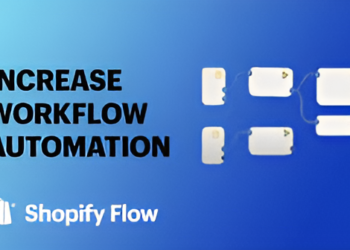“The best salespeople are not those who sell the most, but those who help their customers the most.” – Unknown
Introduction
In today’s fast-paced world, technological advancements are transforming every industry, and sales is no exception. The integration of artificial intelligence (AI) and automation into sales processes has revolutionized how sales professionals operate, bringing about both opportunities and challenges. As we navigate through this era of digital transformation, it becomes crucial to understand how these technologies impact sales career paths, redefine roles, and shape the future of sales.
In this blog, we will delve into the evolving trends in AI and automation within the sales industry, exploring how these innovations are reshaping the landscape, enhancing efficiency, and creating new career trajectories. By examining multiple facets of this transformation, we aim to provide a comprehensive understanding of the impact of AI and automation on sales careers, offering valuable insights for professionals navigating this dynamic field.
The Role of AI in Sales: A Paradigm Shift
AI-Driven Sales Forecasting
One of the most significant impacts of AI in sales is its ability to provide accurate and data-driven sales forecasting. Traditional sales forecasting methods often relied on historical data and gut instincts, leading to inconsistencies and inaccuracies. AI, on the other hand, leverages vast amounts of data and advanced algorithms to predict future sales trends with remarkable precision.
AI-driven sales forecasting tools analyse historical sales data, market trends, customer behaviour, and external factors to generate highly accurate forecasts. These insights enable sales teams to make informed decisions, allocate resources effectively, and set realistic targets. As a result, sales professionals can focus on strategic planning and proactive decision-making, enhancing overall sales performance.
Personalization and Customer Insights
In today’s competitive market, personalized customer experiences are paramount. AI-powered tools have revolutionized how sales professionals understand and engage with their customers. Through data analysis and machine learning, AI can identify customer preferences, behaviours, and pain points, enabling sales teams to tailor their approaches and offerings.
AI-driven customer relationship management (CRM) systems provide sales representatives with valuable insights into customer interactions, purchase history, and communication preferences. Armed with this information, sales professionals can deliver highly personalized experiences, build stronger relationships, and ultimately drive customer loyalty and satisfaction.
Lead Generation and Qualification
Lead generation and qualification have traditionally been time-consuming and labour-intensive processes. AI has streamlined these tasks by automating lead generation and scoring, allowing sales teams to focus on high-potential prospects. AI algorithms analyse various data sources, including social media, website interactions, and online behaviour, to identify and prioritize leads with the highest likelihood of conversion.
AI-powered chatbots and virtual assistants further enhance lead qualification by engaging with potential customers in real time, answering queries, and collecting relevant information. This automation not only accelerates the sales cycle but also ensures that sales representatives spend their time on leads that are most likely to convert, improving overall efficiency and productivity.
Automation in Sales: Redefining Roles and Processes
Streamlining Administrative Tasks
Sales professionals often find themselves bogged down by administrative tasks such as data entry, scheduling, and reporting. Automation has emerged as a game-changer in this regard, significantly reducing the time and effort spent on these mundane activities. Automated CRM systems, for instance, can update customer information, schedule follow-ups, and generate reports without manual intervention.
By automating routine tasks, sales professionals can focus on core activities that require human expertise, such as building relationships, understanding customer needs, and closing deals. This shift not only boosts productivity but also enhances job satisfaction and allows sales teams to operate more strategically.
Enhancing Sales Communication
Effective communication is the cornerstone of successful sales. Automation tools have transformed how sales teams communicate with prospects and customers, ensuring timely and consistent interactions. Email automation, for example, enables sales professionals to send personalized emails at scale, nurturing leads and maintaining engagement throughout the sales funnel.
Moreover, automated communication tools can analyse email open rates, click-through rates, and response times, providing valuable insights into customer engagement. These insights allow sales teams to refine their messaging and strategies, ensuring that they resonate with their target audience and drive meaningful interactions.
Sales Training and Onboarding
The integration of automation in sales training and onboarding processes has revolutionized how new hires are equipped with the necessary skills and knowledge. Virtual training platforms and AI-driven learning modules provide personalized training experiences, catering to individual learning paces and preferences.
Automation ensures that training materials are consistently updated and aligned with the latest industry trends and best practices. This approach accelerates the onboarding process, enabling new sales representatives to become productive more quickly. Additionally, continuous learning through automated platforms ensures that sales professionals stay up-to-date with evolving techniques and technologies.
Emerging Career Paths in the AI-Driven Sales Landscape
Sales Data Analyst
The rise of AI and automation has given birth to new roles within the sales industry, with the Sales Data Analyst being a prime example. Sales Data Analysts leverage AI-powered tools to analyse vast amounts of data, identify trends, and derive actionable insights. Their role involves interpreting data to provide strategic recommendations, optimize sales strategies, and improve overall performance.
Sales Data Analysts work closely with sales teams, marketing departments, and senior management to ensure data-driven decision-making. Their ability to translate complex data into meaningful insights empowers sales professionals to make informed choices and stay ahead of the competition.
AI Sales Specialist
As AI becomes increasingly integrated into sales processes, the demand for AI Sales Specialists is on the rise. These professionals possess a deep understanding of AI technologies and their applications in sales. AI Sales Specialists are responsible for implementing and managing AI-driven tools, ensuring seamless integration with existing systems, and optimizing their usage to drive sales performance.
AI Sales Specialists also play a crucial role in training sales teams on how to leverage AI tools effectively. They bridge the gap between technology and sales, ensuring that AI solutions are utilized to their full potential, ultimately enhancing the efficiency and effectiveness of sales operations.
Customer Experience Manager
With AI enabling personalized customer experiences, the role of a Customer Experience Manager has gained prominence. Customer Experience Managers focus on designing and implementing strategies that enhance customer interactions and satisfaction. They leverage AI-driven insights to understand customer preferences, pain points, and behaviour, creating tailored experiences that drive loyalty and retention.
Customer Experience Managers work closely with sales teams to ensure that every touchpoint with the customer is seamless and engaging. Their ability to harness AI insights and translate them into actionable strategies contributes to building strong, long-lasting customer relationships.
Challenges and Considerations in the AI-Driven Sales Environment
Ethical Implications of AI in Sales
While AI offers numerous benefits, it also raises ethical considerations that sales professionals must navigate. One of the primary concerns is the potential for bias in AI algorithms. If not carefully monitored, AI systems can inadvertently perpetuate biases present in the training data, leading to unfair treatment of certain customer segments.
Sales teams must prioritize transparency and accountability when implementing AI solutions. Regular audits, diverse data sets, and ethical guidelines are essential to ensure that AI-driven decisions are fair, unbiased, and aligned with ethical standards. By addressing these concerns, sales professionals can build trust with customers and maintain the integrity of their AI-driven processes.
Balancing Automation and Human Touch
Automation has undoubtedly streamlined many sales processes, but it is essential to strike a balance between automation and the human touch. While automated tools can handle routine tasks and provide valuable insights, human interaction remains crucial for building genuine relationships and understanding nuanced customer needs.
Sales professionals must leverage automation to enhance their efficiency while maintaining a personalized approach in their interactions. Building rapport, demonstrating empathy, and offering tailored solutions are aspects of the sales process that require a human touch. By combining the strengths of automation and human interaction, sales teams can deliver exceptional customer experiences.
Continuous Learning and Adaptation
The rapid pace of technological advancements means that sales professionals must commit to continuous learning and adaptation. Staying updated with the latest AI and automation trends, tools, and best practices is essential for maintaining a competitive edge. Sales teams should invest in ongoing training and development to ensure they are well-equipped to leverage new technologies effectively.
Organizations can support this by fostering a culture of learning and providing access to resources such as online courses, workshops, and industry conferences. By embracing continuous learning, sales professionals can remain agile, adapt to changing market dynamics, and capitalize on emerging opportunities.
The Future of Sales Careers in the Age of AI and Automation
Embracing a Hybrid Sales Model
The future of sales lies in a hybrid model that combines the strengths of AI, automation, and human expertise. This model leverages AI-driven insights to enhance decision-making, automate routine tasks, and personalize customer interactions, while sales professionals focus on strategic planning, relationship-building, and delivering value.
A hybrid sales model empowers sales teams to operate more efficiently and effectively, driving higher levels of customer satisfaction and business growth. Sales professionals who embrace this model and continuously adapt to technological advancements will thrive in the evolving sales landscape.
Redefining Sales Skill Sets
As AI and automation become integral to sales processes, the skill sets required for sales professionals are evolving. In addition to traditional sales skills, such as communication and negotiation, modern sales professionals must possess technical proficiency and data literacy. Understanding how to interpret data, leverage AI tools, and integrate automation into workflows is becoming increasingly important.
Sales teams should prioritize upskilling and reskilling initiatives to equip their members with the necessary skills to thrive in the AI-driven sales environment. By fostering a culture of continuous improvement and innovation, organizations can ensure that their sales teams remain competitive and capable of driving success.
Fostering Collaboration Between Sales and Technology Teams
The successful integration of AI and automation in sales requires seamless collaboration between sales and technology teams. Sales professionals must work closely with data scientists, AI specialists, and IT departments to ensure that AI solutions are effectively implemented and aligned with business goals.
Cross-functional collaboration fosters a deeper understanding of AI capabilities and limitations, enabling sales teams to leverage technology to its full potential. By breaking down silos and promoting open communication, organizations can create a cohesive and innovative environment that drives sales excellence.
Conclusion
The impact of AI and automation on sales career paths is profound and far-reaching. These technologies have transformed how sales professionals operate, offering new opportunities for efficiency, personalization, and strategic decision-making. As AI continues to evolve, it is essential for sales teams to embrace these advancements, continuously adapt, and strike a balance between automation and the human touch.
By understanding the evolving trends and implications of AI and automation, sales professionals can navigate this dynamic landscape with confidence and agility. The future of sales lies in leveraging the strengths of technology while maintaining the core principles of relationship-building and customer-centricity. In this era of digital transformation, the sales professionals who thrive will be those who embrace change, harness the power of AI, and remain committed to delivering exceptional value to their customers.
As we look ahead, the journey of AI and automation in sales is just beginning. The possibilities are endless, and the potential for innovation is boundless. By staying informed, continuously learning, and fostering collaboration, sales professionals can shape the future of sales and embark on a path of sustained success in the age of AI and automation.


















